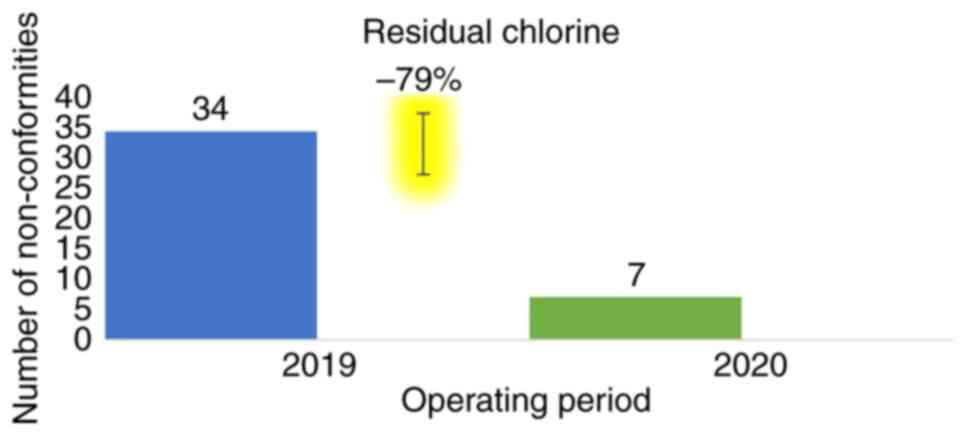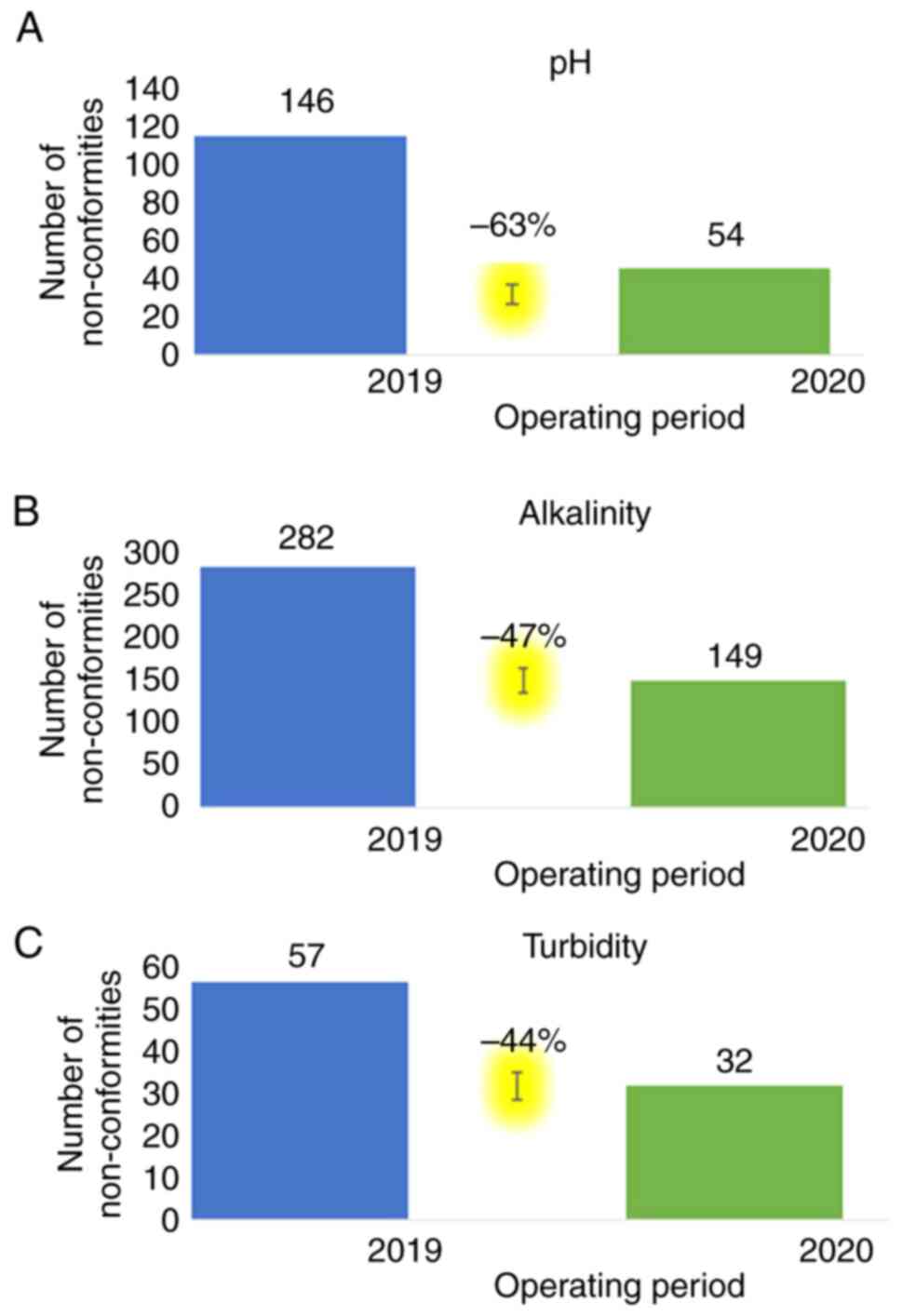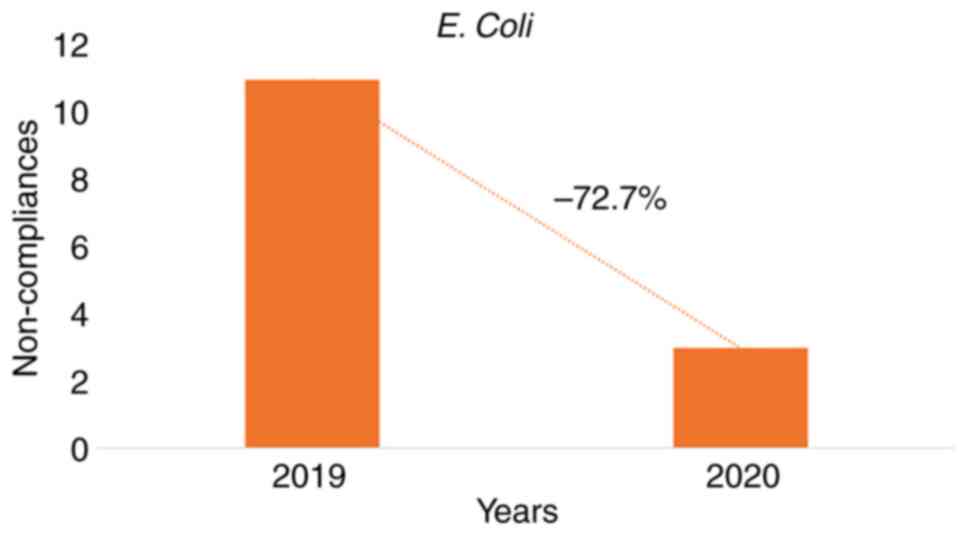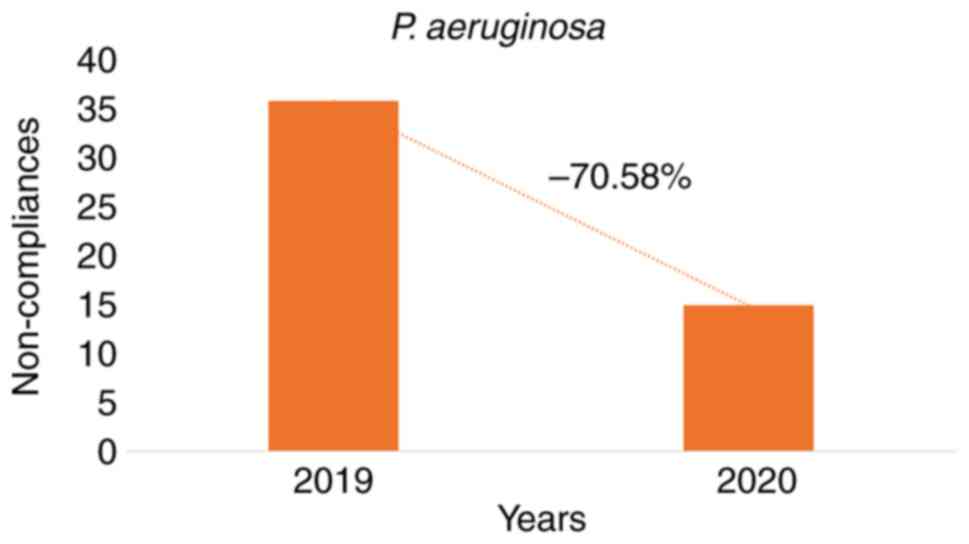|
1
|
Calina D, Docea AO, Petrakis D, Egorov AM,
Ishmukhametov AA, Gabibov AG, Shtilman MI, Kostoff R, Carvalho F,
Vinceti M, et al: Towards effective COVID-19 vaccines: Updates,
perspectives and challenges (Review). Int J Mol Med. 46:3–16.
2020.PubMed/NCBI View Article : Google Scholar
|
|
2
|
Calina D, Hernández AF, Hartung T, Egorov
AM, Izotov BN, Nikolouzakis TK, Tsatsakis A, Vlachoyiannopoulos PG
and Docea AO: Challenges and scientific prospects of the newest
generation of mRNA-Based vaccines against SARS-CoV-2. Life (Basel).
11(907)2021.PubMed/NCBI View Article : Google Scholar
|
|
3
|
Centers for Disease Control and Prevention
(CDC): COVID-19 and Public Pools and Beaches, CDC, Atlanta, GA,
2023. https://www.cdc.gov/healthywater/swimming/aquatics-professionals/covid-19-and-aquatic-venues.html.
|
|
4
|
Centers for Disease Control and Prevention
(CDC): Community, Work, and School. CDC, Atlanta, GA, 2020.
https://www.cdc.gov/coronavirus/2019-ncov/community/index.html.
|
|
5
|
Mellou K, Mplougoura A, Mandilara G,
Papadakis A, Chochlakis D, Psaroulaki A and Mavridou A: Swimming
pool regulations in the COVID-19 Era: Assessing acceptability and
compliance in greek hotels in two consecutive summer touristic
periods. Water. 14(796)2022.
|
|
6
|
World Health Organization (WHO), Fund
(UNICEF) UNC: Water, sanitation, hygiene, and waste management for
the COVID-19 virus: Interim guidance, 19 March 2020. Report No.:
WHO/2019-nCoV/IPC_WASH/2020.2. WHO, Geneva, 2020. https://apps.who.int/iris/handle/10665/331499.
|
|
7
|
Damaskos C, Garmpi A, Georgakopoulou VE,
Farmaki P, Diamantis E, Dimitroulis D, Valsami S, Kontzoglou K,
Antoniou EA, Damaskou Z, et al: COVID-19: Do it like Greece! Why
Greece is coping with COVID-19 better than other countries? Pan Afr
Med J. 35(109)2020.PubMed/NCBI View Article : Google Scholar
|
|
8
|
Anagnostopoulos L, Kourentis L, Papadakis
A and Mouchtouri VA: Re-starting the Cruise sector during the
COVID-19 pandemic in Greece: Assessing effectiveness of port
contingency planning. Int J Environ Res Public Health.
19(13262)2022.PubMed/NCBI View Article : Google Scholar
|
|
9
|
National Public Health Organization
(NPHO): Instructions for the cleaning and disinfection of the
surrounding Health Service Areas that have been exposed to the
SARS-CoV-2 virus. https://eody.gov.gr/odigies-gia-ton-katharismo-perivallontos-choron-parochis-ypiresion-ygeias-poy-echoyn-ektethei-ston-io-SARS-CoV-2/.
Accessed January 30, 2021 (In Greek).
|
|
10
|
Papadakis AA and Koufakis IE: Procedures
for cleaning, disinfection and sterilization of
surfaces-spaces-objects. Scientific Library of Technical Schools of
the Chamber of Heraklion, Heraklion 2020 (In Greek).
|
|
11
|
Papadakis AA and Koufakis IE:
Environmental measures to control the spread of infections in the
era of Covid-19. Region of Crete, Heraklion, 2021 (In Greek).
|
|
12
|
National Public Health Organization:
Instructions for the cleaning and disinfection of the other than
Health Service Areas that have been exposed to the SARS-CoV-2
virus. https://eody.gov.gr/odigies-gia-ton-katharismo-perivallontos-choron-parochis-ypiresion-ygeias-poy-echoyn-ektethei-ston-io-SARS-CoV-2/.
Accessed January 30, 2021 (In Greek).
|
|
13
|
Hellenic Institute for Occupational Health
and Safety (ELINYAE): Circular of the Hellenic Ministry of Health
14947/2020 (Government sheet/4.3.2020). ELINYAE, Athens, 2020.
https://www.elinyae.gr/ethniki-nomothesia/egk-d1dgp-oik-149472020-fek-432020.
|
|
14
|
Ramya G, Guru CS, Banodhe GK, Dominic D
and Sharma HB: Resumption to swimming post COVID-19 lockdown. J
Clin Diagn Res. 15:CE01–CE05. 2021.
|
|
15
|
Demirkan E, Özkadı T, Can S, Kutlu M,
Demir E and Alagöz İ: The impacts of the COVID-19 pandemic in
swimmers: A comparison of daily life activities in pre-restriction
and during restriction. Spor Hekim Derg. 56:166–171. 2021.
|
|
16
|
Centers for Disease Control and Prevention
(CDC): Healthy Swimming: Healthy Water: Operating Public Swimming
Pools. CDC, Atlanta, GA, 2022. https://www.cdc.gov/healthywater/swimming/aquatics-professionals/operating-public-swimming-pools.html.
|
|
17
|
Guida M, Di Onofrio V, Gallè F, Gesuele R,
Valeriani F, Liguori R, Spica VR and Liguori G: Pseudomonas
aeruginosa in swimming pool water: Evidences and perspectives for a
new control strategy. Int J Environ Res Public Health.
13(919)2016.PubMed/NCBI View Article : Google Scholar
|
|
18
|
Papadakis A, Chochlakis D, Sandalakis V,
Keramarou M, Tselentis Y and Psaroulaki A: Legionella spp. Risk
assessment in recreational and garden areas of hotels. Int J
Environ Res Public Health. 15(598)2018.PubMed/NCBI View Article : Google Scholar
|
|
19
|
MedCalc: MedCalc's Relative risk
calculator. MedCalc Software Ltd, 2023. https://www.medcalc.org/calc/relative_risk.php.
|
|
20
|
Hellenic Institute for Occupational Health
and Safety (ELINYAE): Ministerial Decision C1/443/1973 (87/Β'
24.1.1973). ELINYAE, Athens, 1973. https://www.elinyae.gr/ethniki-nomothesia/ya-g14431973-fek-87b-2411973
(In Greek).
|
|
21
|
Centers for Disease Control and Prevention
(CDC): Healthy Swimming: Healthy Water: Water Treatment and
Testing. CDC, Atlanta, GA, 2023. https://www.cdc.gov/healthywater/swimming/residential/disinfection-testing.html.
|
|
22
|
Romano-Bertrand S, Glele LSA, Grandbastien
B and Lepelletier D: French Society for Hospital Hygiene.
Preventing SARS-CoV-2 transmission in rehabilitation pools and
therapeutic water environments. J Hosp Infect. 105:625–627.
2020.PubMed/NCBI View Article : Google Scholar
|
|
23
|
Chowdhury S, Alhooshani K and Karanfil T:
Disinfection byproducts in swimming pool: Occurrences, implications
and future needs. Water Res. 53:68–109. 2014.PubMed/NCBI View Article : Google Scholar
|
|
24
|
Masoud G, Abbass A, Abaza A and Hazzah W:
Bacteriological quality of some swimming pools in Alexandria with
special reference to Staphylococcus aureus. Environ Monit Assess.
188(412)2016.PubMed/NCBI View Article : Google Scholar
|
|
25
|
Paruch L, Paruch AM, Eiken HG and Sørheim
R: Faecal pollution affects abundance and diversity of aquatic
microbial community in anthropo-zoogenically influenced lotic
ecosystems. Sci Rep 9, 2019. https://www.nature.com/articles/s41598-019-56058-x.
|
|
26
|
Hellenic Institute for Occupational Health
and Safety (ELINYAE): Circular of the Hellenic Ministry of Health
2/99932/06/2007 (22.3.2007). ELINYAE, Athens, 2007. https://www.elinyae.gr/ethniki-nomothesia/egk-dyg299932062007-fek-2232007
(In Greek).
|
|
27
|
Mustapha UF, Abobi SM and Quarcoo G:
Physicochemical and bacteriological quality of public swimming
pools in the Tamale Metropolis, Ghana. J. 3:236–249. 2020.
|
|
28
|
Verma A, Bolton FJ, Fiefield D, Lamb P,
Woloschin E, Smith N and McCann R: An outbreak of E. coli O157
associated with a swimming pool: an unusual vehicle of
transmission. Epidemiol Infect. 135:989–992. 2007.PubMed/NCBI View Article : Google Scholar
|
|
29
|
Health University of Utah: What's Lurking
in Swimming Pools? Health University of Utah, Salt Lake City, Utah,
2023. https://healthcare.utah.edu/healthfeed/2014/04/peeing-pool-bad-your-health.
|
|
30
|
Centers for Disease Control and Prevention
(CDC): Swimming-related Illnesses. CDC, Atlanta, GA, 2022.
https://www.cdc.gov/healthywater/swimming/swimmers/rwi.html.
|
|
31
|
Rangel JM, Sparling PH, Crowe C, Griffin
PM and Swerdlow DL: Epidemiology of Escherichia coli O157:H7
outbreaks, United States, 1982-2002. Emerg Infect Dis. 11:603–609.
2005.PubMed/NCBI View Article : Google Scholar
|
|
32
|
PGoverment of Western Australia,
Department of Health: Pseudomonas aeruginosa in swimming pools and
spas. Department of Health, East Perth, WA, 2020. https://www.health.wa.gov.au/Articles/N_R/Pseudomonas-aeruginosa-in-swimming-pools-and-spas.
|
|
33
|
Rice SA, van den Akker B, Pomati F and
Roser D: A risk assessment of Pseudomonas aeruginosa in swimming
pools: A review. J Water Health. 10:181–196. 2012.PubMed/NCBI View Article : Google Scholar
|
|
34
|
Craun GF, Calderon RL and Craun MF:
Outbreaks associated with recreational water in the United States.
Int J Environ Health Res. 15:243–262. 2005.PubMed/NCBI View Article : Google Scholar
|
|
35
|
Fluidra: Swimming pool water: 6 safety
tips from COVID-19. Fluidra, Barcelona, 2021. https://www.fluidra.com/projects/pool-water-6-safety-tips-during-covid-19/.
|
|
36
|
Borella P, Montagna MT, Stampi S,
Stancanelli G, Romano-Spica V, Triassi M, Marchesi I, Bargellini A,
Tatò D, Napoli C, et al: Legionella contamination in hot water of
Italian hotels. Appl Environ Microbiol. 71:5805–5813.
2005.PubMed/NCBI View Article : Google Scholar
|
|
37
|
Papadakis A, Keramarou M, Chochlakis D,
Sandalakis V, Mouchtouri VA and Psaroulaki A: Legionella spp.
Colonization in water systems of hotels linked with
travel-associated Legionnaires' disease. Water. 13(2243)2021.
|


















